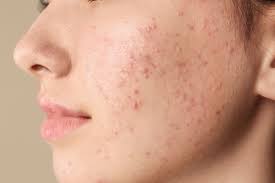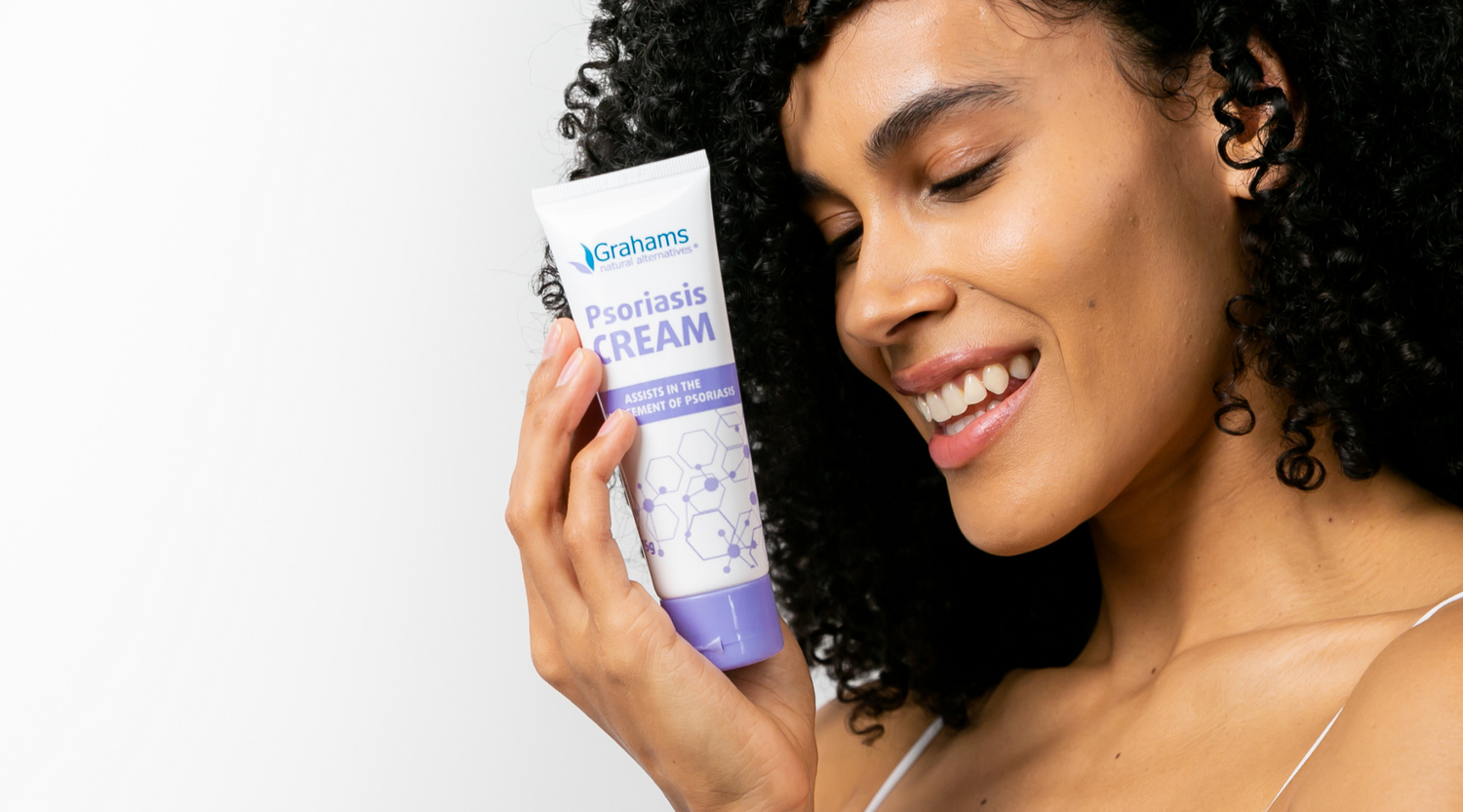We all get a pimple every now and then but for some of us, the occasional pimple can turn into acne and this can really affect our confidence and feelings towards our skin. Key acne treatments include dietary ad lifestyle changes but ultimately the products we put on our skin are crucial to the results we see.
The marketing surrounding acne products is immense and it is incredibly common for companies to use harsh chemicals to achieve superficial or temporary outcomes. Finding the right product that works deeper than just reducing sebum production, drying the skin and killing off all bacteria (our skin has its own microbiome which is crucial for good skin health) is super important when you are treating acne.
It is also important to know that there are options for you to treat your acne in a way that is friendlier on the planet so you don’t have to compromise your values to achieve amazing skin!
What causes and triggers Acne?
Acne Vulgaris is a common skin disease characterised by patches of scaly red skin (seborrhea), pimples (pustules) and blackheads or whiteheads (comedones). Cystic Acne is a more severe type of acne where infection and inflammation have caused significant, red, deep, and sore acne lesions. Acne is usually present in oilier skin types with a dense population of sebaceous follicles and effects mainly the face, upper chest and back.
Acne is predominately associated with adolescents as hormones rage! However, acne commonly appears in adults and sporadically during times of stress and altered hormone levels, such as during pregnancy. Our skin reflects what is happening inside the body, so be aware of internal factors when suffering from a bout of acne. Take time for self-care and for females recognize the difference in hormones around that time of the month as this may have effect on your skin.
8 tips for treating acne naturally
- Change your mindset
A positive mind when dealing with skin conditions can have huge impact when experimenting with treatment. Understanding that there is no ‘quick fix’ solution, will help your skin clear quicker as the stress element is taken away (it’s like dieting!). Following the right advice consistently and not just for a week will help your skin adjust and even the oil levels out.
- Don’t over cleanse
It is a common misconception that by removing the excess oils sitting on the skins surface will take away any ‘clogging’ effect. However, all it does is strip the skin’s surface and interrupt the skin’s acid mantle (our skins natural barrier). This layer is essential for protecting the skin against infection, irritation, allergic reactions and dehydration.
Over-cleansing can leave the skin prone to further infections and breakouts, not to mention dehydration. Cleansing twice a day with a gentle and soothing cleanser like our Acne Wash will help cool and moisturize troubled skin. It also has the added benefits of power natural ingredients.
- Avoid harsh skincare ingredients
It is essential that the skin can breathe! Anything that blocks it, prohibits it from functioning correctly. This includes:
Silicone derivatives: Pore-clogging silicones (usually labelled dimethicone), clogs the skin and can lead to inflammation. Bacteria, natural oils and other impurities are released naturally, however silicone-derivatives can cause oil, sweat and dead skin cells to become trapped in the pore, causing inflammation and infection. This includes make up that contain these derivatives if you cover up your acne, this can be contributing to the breakouts and congestion.
Benzoyl Peroxide: This is a very harsh blech-based chemical that is extremely common in skincare products. It the harsh chemical used to dye our hair – something you do not want on your face! This chemical can sting, burn, dry, and irritate the skin further.
Harsh exfoliants: People are quick to jump to trend to ‘scrub the dead skin cells away’, however you may be irritating your skin as it scrubs the bacteria away. Avoid microbeads, harsh salt/sugar scrubs on your face and large-molecule sized exfoliants.
- Minimize processed foods
Changes in your diet can help control blood sugar levels and regulate hormones that are linked to acne breakouts. Certain foods such as those high in sugar and simple carbohydrates are linked to acne breakouts. That includes:
- Processed food e.g. chips and biscuits
- Food high in starch e.g. white bread, pasta, and potatoes
- Sugary drinks e.g. soft drinks and energy drinks.
Your body responds to the increase in blood sugar levels by producing more insulin which increases the production of skin oils. This, in turn contributes to the clogging of the follicles in the skin which is the perfect environment for acne bacteria to thrive.
- Maximize nutrient dense foods
Changing your diet to include more nutrient dense foods can help clear your skin more quickly. Try to implement a range of fresh produce – eat the rainbow! Boosting your gut health by increasing probiotic foods can help properly absorb nutrients. Also, hydrating your skin inside out is crucial! Make sure you are drinking plenty of water, try drinking a glass as soon as you wake in the morning.
- Have a makeup free day each week
Not only will this give your skin a break, it will help with your self-confidence! It is important that your skin can breathe and be able to release impurities without obstructions – like makeup. Covering your skin with makeup everyday will clog and inflame the skin which could result in an infection.
- Detox and exfoliate your skin
Using a combination of a cleanser and a gel will help ensure your dead skin cells aren’t blocking your pores. For an effective acne solution, we recommend using our Acne Pack. The two products – our Acne Wash and Acne Gel have been specially designed to help clear your complexion.
- Don’t Squeeze!
Keep your hands off your skin when it is inflamed! Touching, squeezing and picking your skin will spread the infection, pout pressure on capillaries (and can burst them), and add unwanted bacteria and oil to the skin!
Always seek medical advice if symptoms do not improve.





